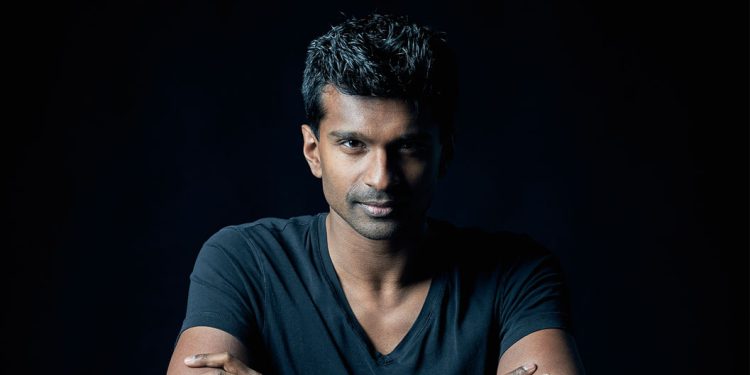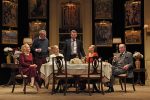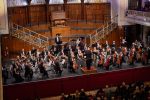Royal Philharmonic – Live Review – Hull City Hall

By Karl Hornsey, October 2023
The latest classical concert at Hull City Hall brought renowned pianist Mark Bebbington to the stage, alongside the Royal Philharmonic Orchestra, for the centrepiece of the concert, Beethoven’s ‘Emperor’ Concerto, under the baton of Leslie Suganandarajah (pictured above). The concerto is regarded as one of the hardest to master and at around 40 minutes in length packs an awful lot in, with Bebbington performing with clear relish and joy.
Before that, though, came the opening piece of the evening, Overture No 1 by French composer and pianist Louise Farrenc, whose works may not have made her particularly famous during her lifetime, but seem to have become much more recognised and performed in recent years. It’s a beautiful piece as well, building from a slow start to allow each of the contrasting elements of the orchestra to come together as it builds to a climax. With a greater focus than ever on the works of female composers, it seems likely that the popularity of the likes of Farrenc will continue to rise.
“Remarkable”
And so to the highlight of the evening, and the Emperor concerto, the name of which, somewhat disappointingly, doesn’t seem to have any great story attached to it. Simply enough it appears to have come from it being described at the time as ‘an emperor among concertos’, which in fairness it undoubtedly is. Even more remarkable is the fact that it was composed around the time that Beethoven was battling with the fact that he was going deaf, which prevented him from performing the concerto once he’d composed it. That honour fell instead to Friedrich Schneider as the soloist. With this, Beethoven’s fifth piano concerto, he continued to ensure the piano was front and central, not working in tandem as much with the orchestra as those of other composers, and Bebbington is to the fore right from the off, demonstrating his remarkable skills. There’s plenty of chance for the woodwind and string sections to help elevate this concerto even higher, but it’s a piano concerto and that’s the where the attention should rightly be focused.
The final piece of the evening was Brahms’ Fourth Symphony, which, rather sadly, was the last of his works that Brahms saw performed, as he died less than a month after seeing it at a concert in 1897. Rather more cheering, though, is the reception that the symphony received, which led to a triumphant ovation, reducing an emotional








